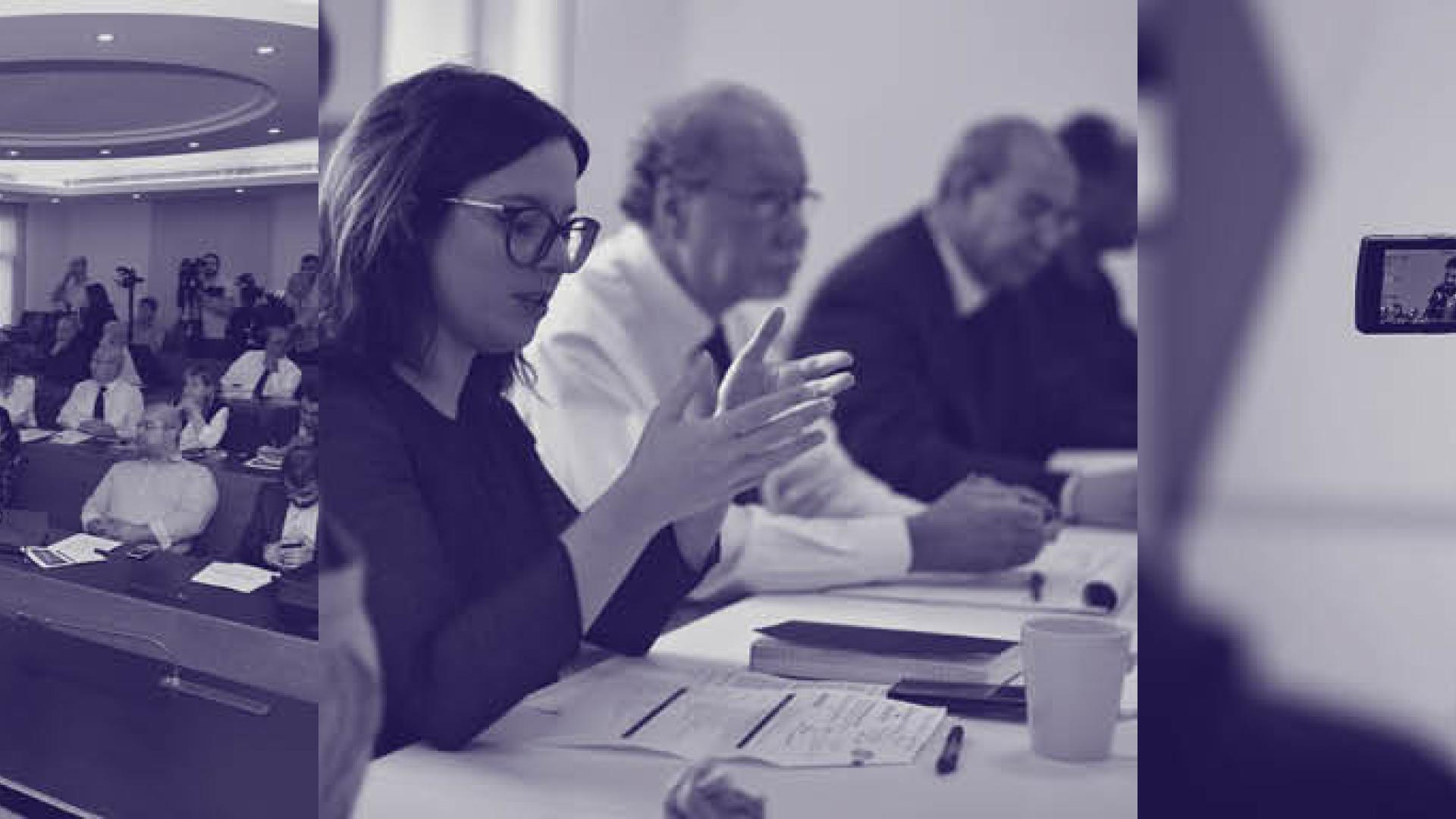Lobbying for change: WFD’s support to human rights CSOs in Macedonia

“By deconstructing the myth that marriages under 18 years old are part of the Roma tradition, we want to ensure the realisation of children’s rights” says Nesime Salioska, the Executive Director at ROMA S.O.S, one of the 12 civil society organisations Westminster Foundation for Democracy (WFD) is working with in Macedonia.
From patients with rare diseases to the issue of child marriage amongst the Roma community, WFD’s programme in Macedonia is set to support a wide range of civil society organisations tackling different human rights issues. WFD will support the CSOs by building their capacity to engage with decision-makers in Macedonia, encouraging a dialogue on human rights based on research and evidence.
Conducting research – how to engage decision-makers
The programme, which brings together 12 civil society organisations in Macedonia, delivered its first training explaining the best way for the CSOs to conduct effective research and present it to parliament through a policy paper.
“We now have the knowledge, skills and support provided by the mentors to conduct this research, discover the challenges and best practices, and prioritise accordingly,” says Anja Bosilkova, Vice President from Wilson Macedonia, a support group for patients suffering from the rare disease. Her organisation is advocating for the government to introduce changes to existing legislation on health care, insurance, medicines and medical devices.
“Then we will be able to propose adequate solutions to the most pressing issues first, such as having proper diagnostic procedures available for early diagnosis.” Anja says that WFD’s first training in May 2016 helped her approach the challenge in an effective way. She explains: “As patients, we know our problems, but in order to find out the major issues for most of the patients, and translate it into policy paper, we need support to go through this process.”
Nesime Salioska believes her CSO has benefited because the training’s focus on evidence and research “could change negative perceptions and attitudes toward this issue in Roma communities”. She adds: “We gained capacity and knowledge which will enable us to bring evidence and raise the interest of different stakeholders to join our efforts.” This enables her and her colleagues to explain, using evidence, why Roma communities should be protected through legislation.
Elena Nakova is a lawyer who volunteers at Free Software Macedonia, another CSO benefiting from WFD’s support. Its campaign aims to improve the privacy of citizens’ personal data following the abuses of voter list information during the political crisis. She said she felt the training was helpful in outlining the stages a CSO should work through when presenting information to parliament. “The training held at the School of Journalism and Public Relations helped us define certain aspects, such as the stakeholders and the need to make interviews with them in addition to the desk research in order to obtain valid information,” she said.
Legislative change – protecting citizens’ human rights
But, how does improving the ability of CSOs to conduct research help improve citizens’ human rights in Macedonia? Legislative change is the ultimate goal of WFD’s support.
For Elena Nakova of Free Software Macedonia that means they “want to see real change and work hard so that Macedonian citizens obtain better protection of their personal data.” She continues: “The problems that occurred during the political crisis and the handling of the voter list drew our attention and we knew that an urgent reform to the Law on personal identification numbers is needed. We were already familiar with the Croatian model and we made draft provisions that should be included in the new Law.” This is a significant change which, if achieved, would protect Macedonian’s citizen’s privacy and personal data.
Anja from Wilson Macedonia is also focused on changing the law because she believes “long-term solutions are a necessity for a proper, institutionalised approach to the treatment of rare diseases in Macedonia. Recognising rare disease patients as a separate group with specific health needs and introducing the necessary legislative changes in health protection will make a real difference to the lives of this marginalized group. This is what we aim to do,” she said.
The importance of legislative change also applies to ROMA S.O.S. “The issue is related to children who are not mature enough to make decisions independently, so the state is the one that through legal regulations and acts of the institutions should protect them within the frames of established norms for the rights of the children and their best interests,” Nesime Salioska says.
ROMA SOS hope to overcome this issue “by undertaking mainstream activities that contribute to the improvement of Roma’s comprehensive integration in the context of human rights and to the concept of equality for citizens, no matter the status or belonging to which group”.
By providing training around the key principles of evidence, advocacy and access, WFD is set to support Macedonian CSOs to deliver change to citizens’ lives through their improved lobbying of parliament. It’s not just these three CSOs which will benefit, either: this programme supports 12 CSOs covering a range of issues from discrimination in higher education to sanctions against hate speech.
WFD’s ambition is for these CSOs to be standard-bearers for a new way of engaging with parliament; successful results for these initiatives will encourage others to adopt the same practices. That can only make Macedonia’s democracy stronger. Doing so will help the effectiveness of the parliament in its efforts to achieve better policy on human rights issues. It will also improve representation of the marginalised groups of citizens set to benefit – both important ingredients in making Macedonia’s governance more inclusive and effective.